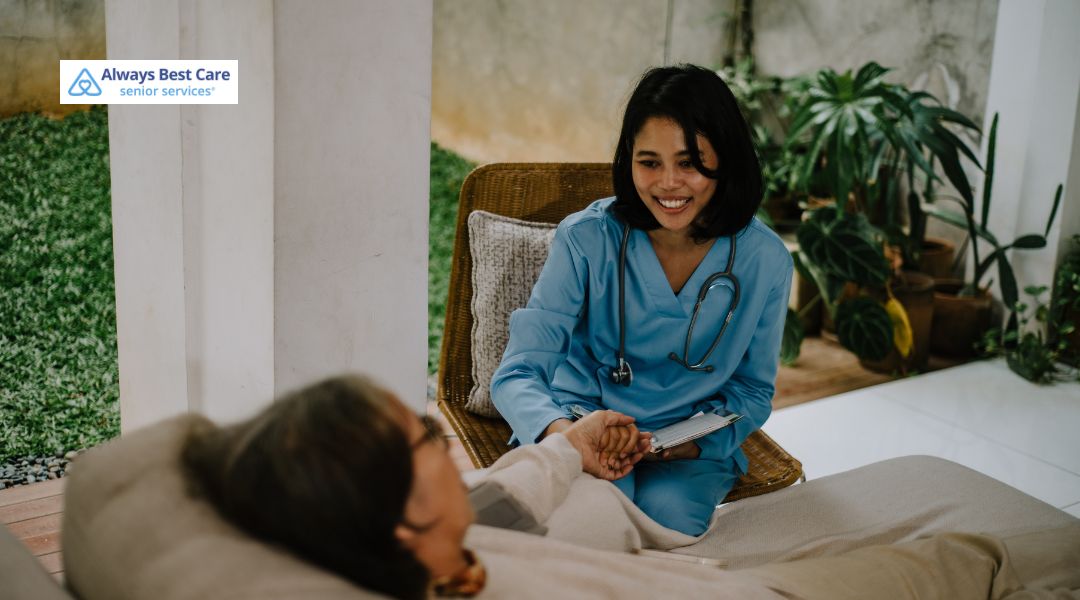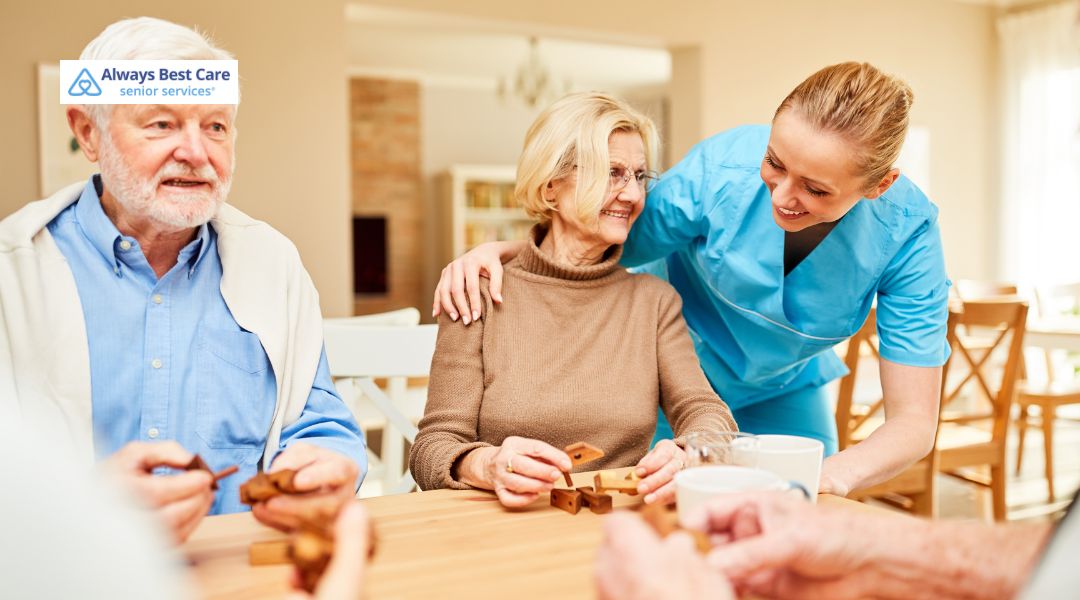5 Key Services Included in Hospital-to-Home Care for Seniors

Heading home after a hospital stay feels like a big sigh of relief—but recovery isn’t over when you walk out the door. The transition from hospital to home can bring new meds, safety concerns, and daily needs that are tough to handle alone. Always Best Care of Palm Desert makes the homecoming easier with hospital-to-home care built around five essential services that keep seniors safe, comfortable, and healing.

1. Medication Management
Managing a handful of new prescriptions can feel like solving a daily puzzle. Always Best Care’s hospital-to-home service turns that stress into a clear, manageable routine:
- Organized pill setup – Caregivers fill easy-to-read pill boxes, label each section, and set reminders on timers or phones, so every dose is taken right on schedule.
- Side-effect watch – They keep an eye out for reactions like changes in mood, appetite, or energy and quickly alert doctors if something seems off.
- Prescription coordination – Caregivers stay in touch with pharmacies and physicians to handle refills and confirm any dosage updates before they become urgent.
- Flexible scheduling – If mealtimes, therapy sessions, or sleep patterns shift, dosing times are adjusted seamlessly to stay effective and safe.
By combining careful organization with ongoing monitoring, medication management helps seniors stay on track with their treatments while giving families welcome peace of mind.
2. Mobility Help and Fall Prevention
After a hospital stay, even simple movements like getting out of bed can feel shaky. Always Best Care’s hospital-to-home service provides steady, practical support so every step is safer and more confident:
- Hands-on assistance – Caregivers help with walking, turning, and transferring from bed to chair or bathroom, reducing strain and slips.
- Home safety checks – They identify hazards like loose rugs, cluttered walkways, or dim lighting and suggest quick fixes.
- Fall-prevention strategies – Simple upgrades such as grab bars, railings, or non-slip mats lower the risk of accidents.
- Gentle strength exercises – Guided routines build balance and muscle tone, helping seniors regain independence faster.
This careful mix of safety measures and friendly encouragement keeps seniors moving comfortably while cutting the chance of dangerous falls.
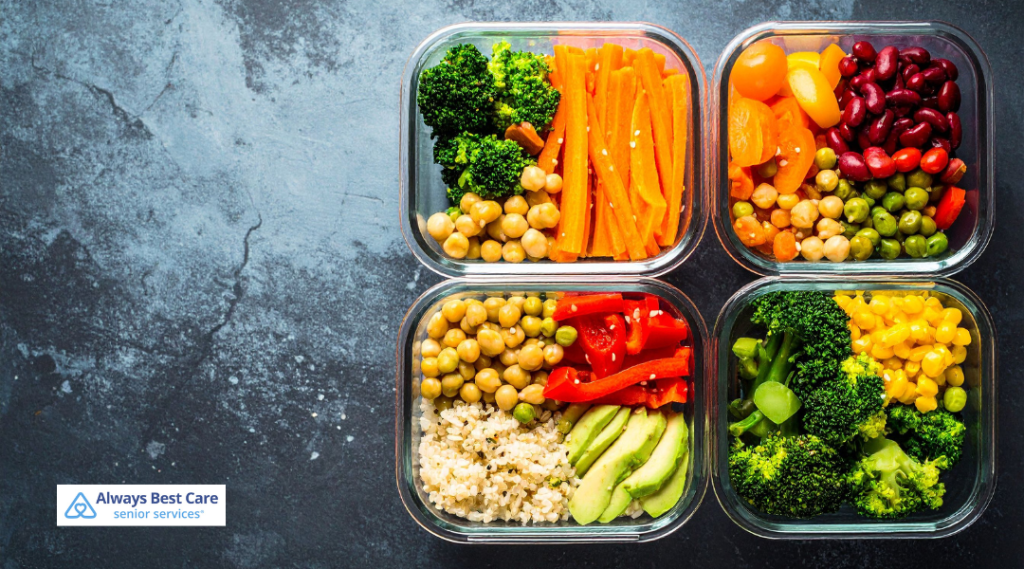
3. Nutritious Meal Preparation
Good food fuels faster healing—and it tastes better when someone thoughtful prepares it. With hospital-to-home care, mealtime becomes a powerful part of recovery:
- Custom meal planning – Caregivers create menus that match medical needs such as low-salt, heart-healthy, or diabetic-friendly diets.
- Fresh cooking at home – Meals are made right in the kitchen, ensuring flavor and freshness every day.
- Hydration reminders – Caregivers keep drinks handy and prompt regular sips to prevent dehydration.
- Snack and portion support – Balanced snacks and right-sized portions maintain steady energy between meals.
By turning nutrition into a simple, delicious routine, meal preparation helps seniors rebuild strength and enjoy the comfort of home cooking.
4. Therapy Coordination
Physical, occupational, or speech therapy is often key to regaining independence. Always Best Care makes those sessions easy to manage at home:
- Scheduling and reminders – Caregivers coordinate appointments and help track therapy goals without missed sessions.
- At-home exercise support – They guide seniors through prescribed movements to keep progress steady between therapist visits.
- Progress tracking – Notes and updates are shared with healthcare teams so everyone stays informed.
- Motivation and encouragement – Gentle reminders and positive reinforcement turn daily exercises into achievable habits.
With therapy coordination built into daily care, seniors can focus on regaining mobility and confidence at a comfortable pace.
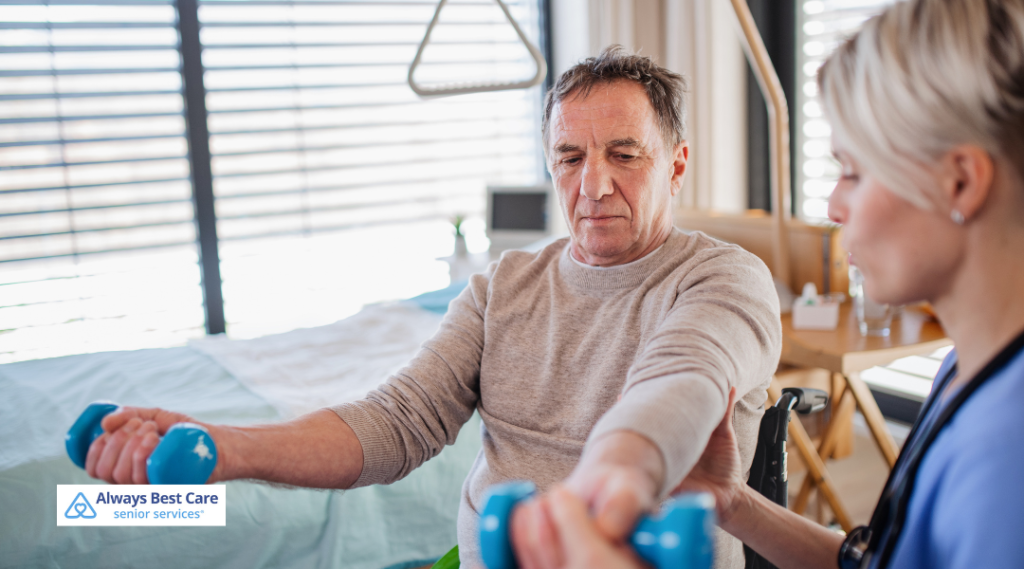
5. Monitoring Recovery Progress
Healing doesn’t stop after discharge—it’s a daily process that benefits from watchful eyes. Always Best Care’s hospital-to-home service includes consistent health monitoring to keep recovery on track:
- Daily vital checks – Blood pressure, temperature, oxygen levels, and heart rate are measured to spot changes early.
- Wound and symptom observation – Caregivers watch for redness, swelling, or other signs that might signal infection.
- Quick communication with doctors – Any concerns are relayed promptly for timely medical guidance.
- Regular updates for families – Loved ones receive clear, consistent progress reports to stay informed and reassured.
By blending attentive observation with fast communication, recovery monitoring helps seniors heal safely and reduces the risk of hospital readmission.
Table of Contents
FAQs About Hospital-to-Home Care
Q: How quickly can services start?
A: In many cases, care can begin the very day a senior comes home. Always Best Care works closely with hospitals and discharge planners to make sure there’s no gap between hospital treatment and home recovery. Same-day starts mean less stress and a safer, smoother move home.
Q: Will caregivers follow the doctor’s discharge instructions?
A: Yes. Every caregiver carefully reviews hospital notes and keeps in touch with healthcare providers. They stick to medication schedules, therapy routines, and dietary guidelines, ensuring the plan your doctor designed is carried out at home without a hitch.
Q: Can my family help design the care plan?
A: Absolutely. From the first meeting, families are encouraged to share input on daily routines, meal preferences, and personal comfort. Care plans are adjusted along the way, and caregivers provide frequent updates—so everyone stays informed and confident.
Q: Are these services covered by insurance or Medicare?
A: Coverage varies, but you won’t have to figure it out alone. Always Best Care helps families understand benefits, explore assistance programs, and handle paperwork, making the financial side of care much less daunting.
These expanded answers show how hospital-to-home care is built around prompt starts, clear communication, and steady teamwork—helping seniors and families feel supported every step of the way.
Recovering at home should feel safe and stress-free. With Always Best Care of Palm Desert delivering these five key hospital-to-home services—medication management, mobility support, meal preparation, therapy coordination, and health monitoring—seniors and their families can relax and focus on getting stronger, one comfortable day at a time.
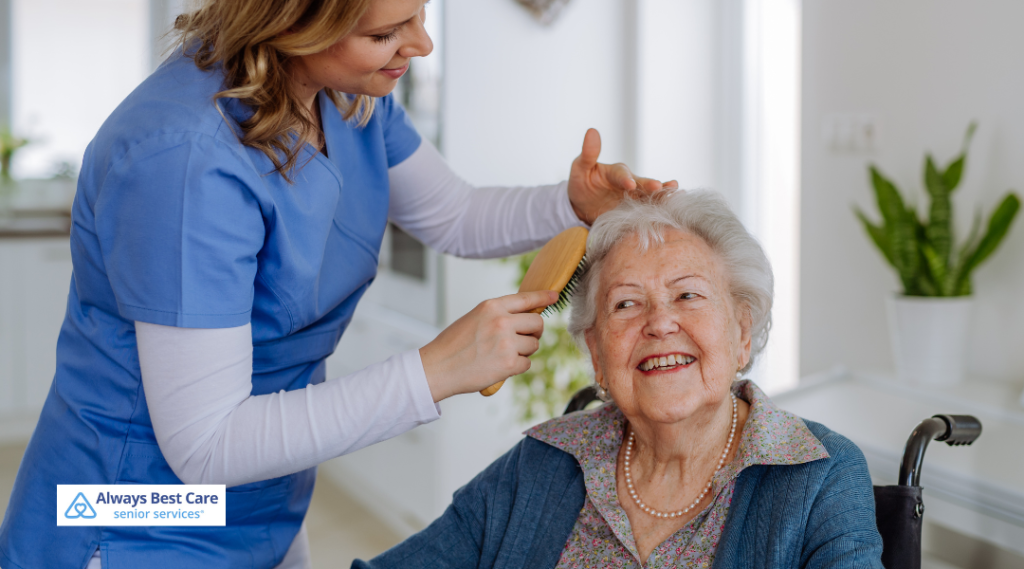
Make the Move from Hospital to Home Easy and Safe
Give your loved one the comfort of healing in familiar surroundings with expert help every step of the way. Always Best Care’s hospital-to-home services bring skilled caregivers, tailored care plans, and round-the-clock support straight to the doorstep. Contact us today to create a personalized plan that keeps recovery smooth, safe, and stress-free.
Contact Always Best Care of Palm Desert at (760) 851-0740 to learn more and schedule your free consultation.



